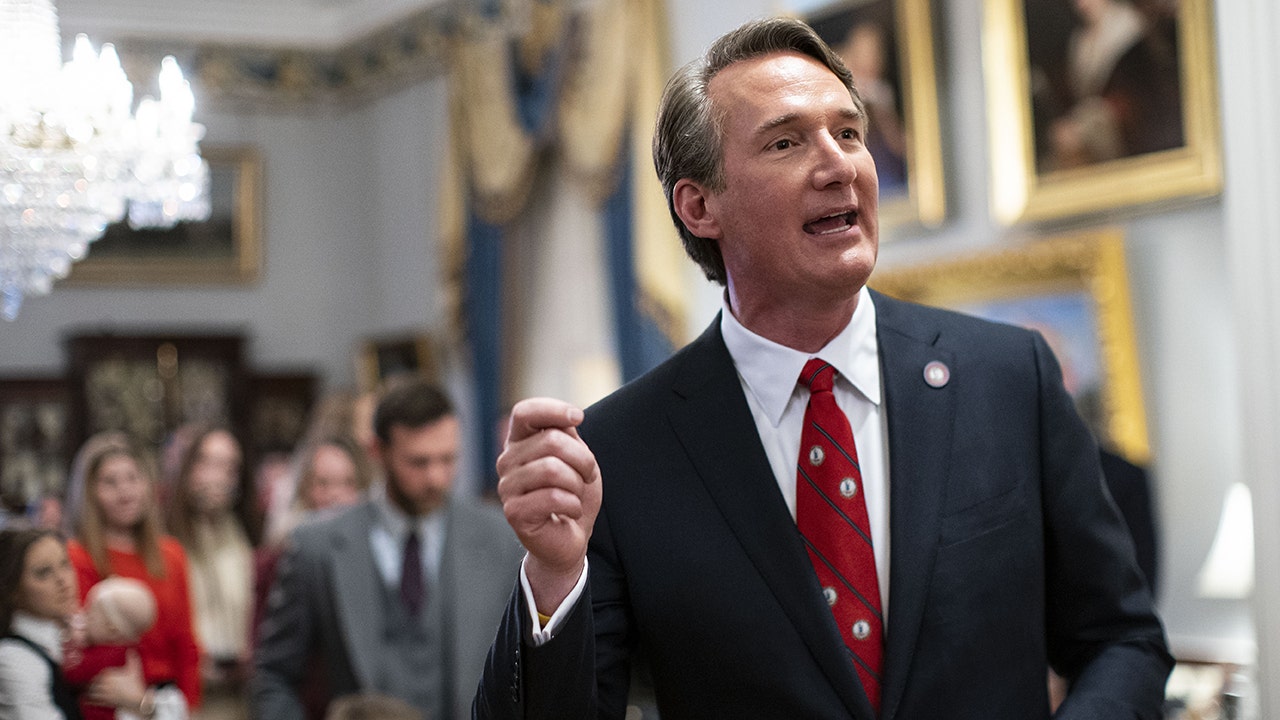Glenn Youngkin’s Religious Beliefs: Glenn Youngkin Religion
Glenn Youngkin, the 74th Governor of Virginia, is a devout Christian who has often spoken about the importance of his faith in his life. He was raised in a Methodist household and attended church regularly throughout his childhood. Youngkin has said that his religious beliefs have had a profound impact on his personal life and political views. He believes that all people are created equal and that we should strive to treat one another with love and compassion. Youngkin has also said that he believes in the importance of religious freedom and that the government should not interfere with people’s ability to practice their faith.
Influence on Personal Life
Youngkin’s religious beliefs have had a significant impact on his personal life. He has said that his faith has given him a strong sense of purpose and direction. He believes that God has a plan for his life and that he is called to serve others. Youngkin has also said that his faith has helped him to overcome challenges and to find peace and joy in life.
Influence on Political Views
Youngkin’s religious beliefs have also influenced his political views. He believes that the government has a responsibility to protect the rights of all citizens, including the right to religious freedom. Youngkin has also said that he believes that the government should promote policies that support families and communities.
Controversies
Youngkin’s religious beliefs have been the subject of some controversy. In 2021, he was criticized for attending a church service where the pastor made anti-LGBTQ+ statements. Youngkin has since said that he does not share the pastor’s views and that he believes that all people should be treated with respect.
The Role of Religion in Youngkin’s Political Campaign

Glenn youngkin religion – Glenn Youngkin, the Republican candidate in the 2021 Virginia gubernatorial election, frequently invoked his Christian faith throughout his campaign. He emphasized the importance of religious freedom and the role of faith in his personal and political life.
Youngkin’s Religious Rhetoric
Youngkin often spoke about his religious beliefs in speeches and interviews. He described himself as a “man of faith” and said that his Christian values guided his decisions. He also talked about the importance of religious freedom and the need to protect the rights of all religious people.
For example, in a speech at a Christian college, Youngkin said, “I believe that faith is essential to a free and just society. It is the foundation of our values and the source of our strength.”
Impact on Campaign Strategy
Youngkin’s religious rhetoric had a significant impact on his campaign strategy. It helped him to appeal to conservative voters who were concerned about the erosion of religious freedom in the United States.
For example, Youngkin ran a television ad that featured him talking about his faith and the importance of religious freedom. The ad was targeted to voters in rural areas, where conservative Christians make up a large share of the electorate.
Voter Outreach
Youngkin’s religious message also helped him to reach out to voters who were not traditionally Republican voters. He spoke at churches and other religious events, and he met with religious leaders from a variety of faiths.
For example, Youngkin met with the leaders of the Virginia Interfaith Center for Public Policy, an organization that represents a wide range of religious groups. He also spoke at a prayer breakfast that was attended by people from different faiths.
Religious Demographics and Voting Patterns in Virginia

Virginia is a religiously diverse state, with a significant Protestant majority. The state’s religious demographics play a role in its political landscape, as religious affiliation often correlates with political preferences.
Religious Demographics, Glenn youngkin religion
According to the Pew Research Center, the religious demographics of Virginia in 2021 were as follows:
| Religious Group | Percentage |
|---|---|
| Protestant | 54% |
| Catholic | 14% |
| Unaffiliated (no religion) | 26% |
| Other | 6% |
Voting Patterns
In recent elections, there has been a correlation between religious affiliation and political preferences in Virginia. Protestants have tended to vote for Republican candidates, while Catholics and the unaffiliated have been more likely to support Democratic candidates.
For example, in the 2021 gubernatorial election, Republican Glenn Youngkin won the Protestant vote by a significant margin, while Democrat Terry McAuliffe won the Catholic and unaffiliated votes.
Influence of Religious Beliefs
The influence of religious beliefs on voting behavior in Virginia is complex and multifaceted. Some voters may be motivated by their religious beliefs to support candidates who share their values on issues such as abortion, same-sex marriage, and school prayer.
However, it is important to note that religious affiliation is not the only factor that influences voting behavior. Other factors, such as party identification, ideology, and economic concerns, also play a role.
Glenn Youngkin, a devout Christian, has been open about his faith throughout his campaign. Like Bill Ackman , Youngkin believes in the importance of faith in shaping public policy. He has pledged to support religious freedom and protect the rights of all Virginians to practice their faith without fear of discrimination.
Glenn Youngkin, a devout Catholic, has expressed his support for Ukraine in the ongoing conflict with Russia. Russia’s invasion of Ukraine has sparked global outrage, and Youngkin has joined other world leaders in condemning the aggression. As a man of faith, Youngkin believes that it is important to stand up for what is right, and he has urged the international community to do more to support Ukraine.